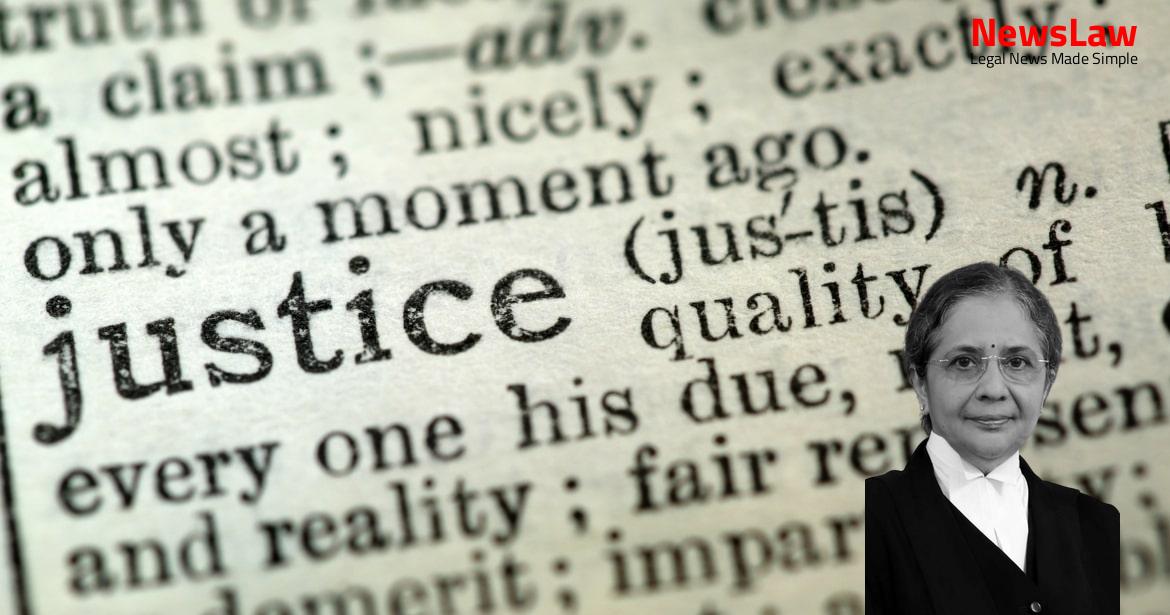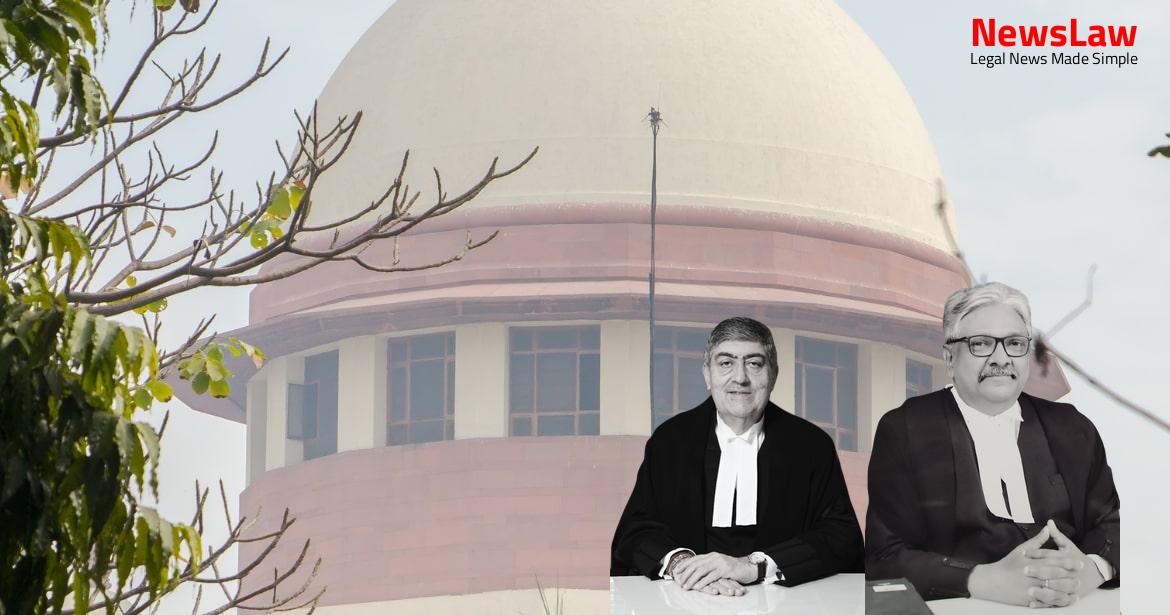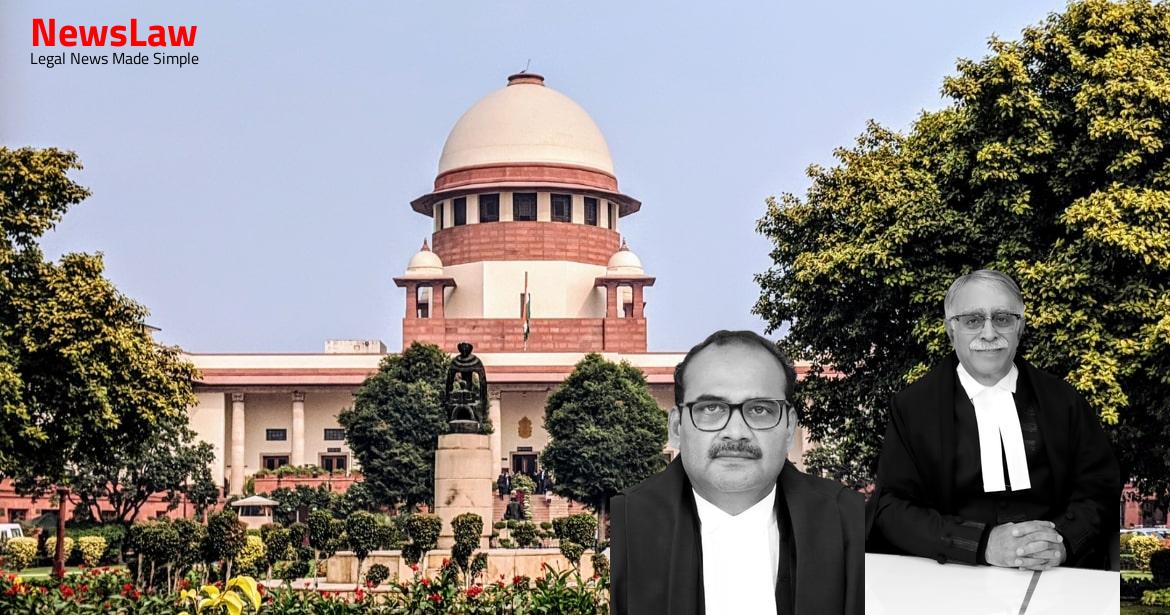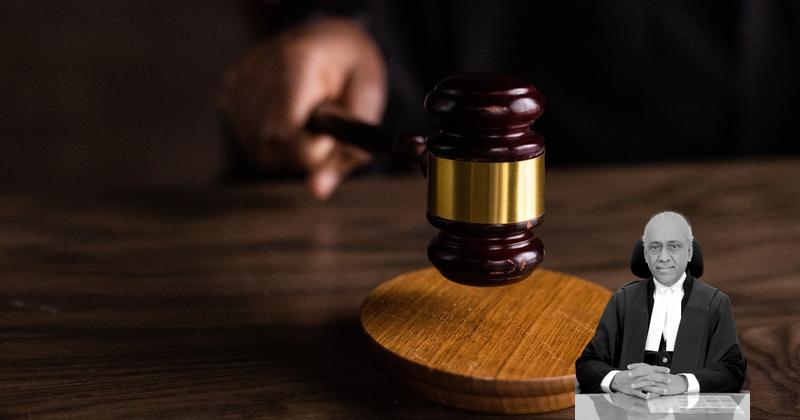In a landmark decision, the Supreme Court of India has acquitted all the accused in the case involving the abduction and murder of Neelam Singh. The judgment emphasizes the critical need for concrete evidence in criminal proceedings and upholds the fundamental principle of innocence until proven guilty. This verdict marks a significant moment in the pursuit of justice for Neelam Singh and her family.
Facts
- Neelam was abducted from her house in Simaltalla, Bihar by seven persons on 30.08.1985.
- The house belonged to Neelam’s late father, Jang Bahadur Singh.
- The accused persons pointed pistols, threatened the informant, and took Neelam away despite witnesses present.
- They also took items from Neelam’s room as they left.
- A case was lodged at PS Sikandra and charges were filed against seven accused persons.
- The motive behind the crime was to forcefully obtain possession of Neelam’s father’s house.
- The matter went to trial and the accused persons were charged with various offences under the Indian Penal Code.
- The Trial Court acquitted A-6 and A-7 stating that the motive for the crime was not applicable to them.
- The High Court upheld the conviction of five convicts but set aside the acquittal of A-6 and A-7.
- The High Court found A-6 and A-7 guilty of offenses under Sections 364/34 and 302/34 of IPC.
- The High Court excluded the testimony of PW5 and relied on other evidence to convict A-6 and A-7.
- A-6 and A-7 were sentenced to rigorous life imprisonment on each count.
Also Read: Land Dispute: Decree Quashed by the Supreme Court of India
Arguments
- High Court should not have re-appreciated the entire evidence without finding any infirmity in the Trial Court’s view.
- Trial Court’s view was a possible view and should not have been disturbed by the High Court in appeal.
- Legal precedents like State of Goa v. Sanjay Thakran, Chandrappa v. State of Karnataka, Nepal Singh v. State of Haryana, Kashiram v. State of M.P., Labh Singh v. State of Punjab, and Suratlal v. State of M.P. support this argument.
- Doubt raised on the testimonies of PW2 and PW4 due to their doubtful presence at the crime scene.
- Claim that PW2 and PW4, being 400 yards away when the hue and cry was raised, could not have witnessed A-6 taking away PW18 towards the well.
- Inconsistency highlighted where the FIR did not assign a pistol to A-6, but this fact was introduced during the evidence.
- The post-mortem report indicated half-digested food in the deceased’s stomach, conflicting with the informant’s deposition that the incident occurred after dinner.
- The time of death was determined around 5:00 PM on 30.08.1985 based on the post-mortem conducted at 5:30 PM on 31.08.1985, contradicting the alleged time of 10:00 PM.
- The appellants questioned the deceased’s actual residence at Simaltalla, challenging the prosecution’s proof.
- The prosecution argued that the absence of some independent witnesses doesn’t weaken the case and cited a relevant court decision on witness cooperation despite fear.
- The High Court’s assessment of evidence was deemed correct in establishing the guilt of the accused persons.
- The appellants also raised concerns about the timing of the incident based on medical evidence.
Also Read: Supreme Court Judgment on Arbitral Award Dispute
Analysis
- The High Court did not find any illegality or perversity in the Trial Court’s opinion regarding abduction.
- Circumstantial evidence surrounding the abduction, such as testimonies of eyewitnesses, failed to meet the legal proof standards.
- The High Court did not provide a clear explanation for excluding the evidence of certain witnesses while relying on others.
- Presence of certain witnesses raises doubts as to why they were at the location of the incident. Lack of natural witnesses like neighbors affected credibility.
- Post mortem report crucial in determining time of death and cause, but not always conclusive proof.
- Inconsistencies in testimonies of eyewitnesses and lack of independent witnesses raise doubt on the prosecution’s case.
- The High Court’s approach in reversing an acquittal was not in line with established legal standards.
- Failure to examine key natural witnesses impacts the reliability of the prosecution’s case.
- Finding of guilt needs to be based on concrete evidence rather than mere suspicion or motive.
- Variations in witness statements and lack of corroboration weaken the prosecution’s case for abduction and murder.
- When two views are possible from the evidence on record, the appellate court must be slow in interfering with the appeal against acquittal.
- The reasons for acquittal given by the trial court must be addressed if the appellate court decides to overturn the acquittal.
- The normal presumption of innocence in a criminal matter gets reinforced with an order of acquittal by the trial court.
- Reasonable doubts raised are irreconcilable and challenge prosecution’s case
- Relying on motive alone is risky as it can be a two-edged sword
- Appellants should be acquitted of all charges due to lack of evidence
- Property dispute between accused and eyewitnesses indicates potential bias
- Both sides could benefit from implicating each other
- Prosecution failed to prove the case beyond reasonable doubt
- Findings of conviction by Trial Court and High Court are unsupportable
Also Read: Judgment by the Supreme Court Of India: Upholding the Principles of Natural Justice
Decision
- Both the impugned judgment and the Trial Court’s judgment convicting A-1 to A-5 have been set aside, and all seven accused (appellants) have been acquitted of all charges.
- If any interim applications were filed, they are now disposed of.
- No costs are to be paid by the appellants.
- The appellants, if in custody, are to be released immediately.
- The High Court made an error in reversing the acquittal of A-6 and A-7.
- The captioned appeals have been concluded according to this judgment.
Case Title: VIJAY SINGH @ VIJAY KR. SHARMA Vs. THE STATE OF BIHAR (2024 INSC 735)
Case Number: Crl.A. No.-001031-001031 – 2015



